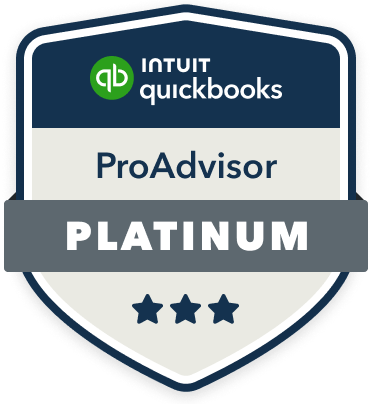Demystifying Small Business Finances: Your Top Questions Answered
Running a small business is no easy task—especially when it comes to managing your finances. Whether you're struggling to understand basic accounting principles or you're unsure how to handle taxes, navigating the world of small business finances can be overwhelming. But fear not! In this article, we aim to demystify small business finances and answer your most pressing questions.
SYSTEMS AND SOFTWARE


From budgeting and cash flow management to financial reporting and tax compliance, we'll break down complex concepts into easy-to-understand terms. We'll also provide expert tips and practical advice to help you gain control over your finances and make informed decisions.
Regardless of whether you're just starting out or are a seasoned small business owner, you'll find valuable insights and actionable strategies to optimize your financial management. So, if you're ready to take your small business to the next level and boost your financial acumen, keep reading as we unravel the mysteries of small business finances.
Why small business finances are important
Small business finances play a crucial role in the success and sustainability of your venture. Understanding and managing your finances effectively can help you make informed decisions, identify opportunities for growth, and mitigate potential risks. Here are a few reasons why small business finances are important:
Financial stability: Proper financial management ensures that your business remains financially stable. By keeping track of your income, expenses, and cash flow, you can ensure that your business has enough resources to cover its operational costs and weather any financial storms that may arise.
Business planning: Accurate financial data is essential for creating realistic business plans. It helps you set achievable goals, allocate resources effectively, and make informed strategic decisions. By analyzing and forecasting your financial performance, you can identify areas for improvement and take corrective action when necessary.
Investor confidence: If you're seeking external funding or looking to attract investors, having well-managed finances is crucial. Investors want to see that you have a clear understanding of your financials and are capable of generating sustainable returns. A strong financial foundation can instill confidence in potential investors and increase your chances of securing funding.
Understanding the importance of small business finances is the first step towards taking control of your financial management. In the next sections, we'll explore common financial challenges faced by small businesses and provide practical solutions to overcome them.
Common financial challenges faced by small businesses
Running a small business comes with its fair share of financial challenges. Here are some of the most common hurdles faced by small business owners and how to overcome them:
Limited cash flow: Many small businesses struggle with cash flow issues, especially during the early stages. Insufficient cash flow can hinder your ability to pay suppliers, meet payroll, or invest in growth opportunities. To overcome this challenge, consider implementing strategies such as invoicing promptly, offering discounts for early payments, and negotiating favorable payment terms with your vendors.
Poor financial record-keeping: Keeping accurate and up-to-date financial records is crucial for understanding the financial health of your business. However, many small business owners neglect this aspect, leading to confusion and potential compliance issues. Use accounting software or hire a professional bookkeeper to maintain organized records of your income, expenses, and financial transactions.
Lack of financial planning: Without a clear financial plan, it's easy to lose track of your business's financial goals and objectives. Develop a comprehensive budget and forecast that takes into account your revenue streams, expenses, and growth projections. Regularly review and update your financial plan to stay on track and make necessary adjustments.
By being aware of these common financial challenges, you can proactively address them and set your small business up for financial success. In the next section, we'll dive into the essential financial statements that every small business owner needs to understand.
Understanding financial statements: income statement, balance sheet, and cash flow statement
Financial statements are vital tools for evaluating the financial performance and position of your small business. They provide a snapshot of your business's financial health and help you make informed decisions. Here are the three primary financial statements every small business owner needs to understand:
Income statement: Also known as the profit and loss statement, the income statement shows your business's revenue, expenses, and net income or loss over a specific period. It helps you track your profitability and identify areas where you can reduce costs or increase revenue.
Balance sheet: The balance sheet provides a snapshot of your business's financial position at a given point in time. It presents your assets, liabilities, and equity, showing how your business is funded and what it owns versus what it owes. By analyzing the balance sheet, you can assess your business's liquidity, solvency, and overall financial health.
Cash flow statement: The cash flow statement tracks the inflow and outflow of cash in your business over a specific period. It shows how cash is generated from operations, investments, and financing activities. Monitoring your cash flow is crucial for ensuring you have enough cash on hand to cover your expenses and meet your financial obligations.
Understanding these financial statements is essential for assessing your business's financial performance, identifying trends, and making informed decisions. In the next section, we'll explore key financial ratios that can provide valuable insights into your small business's financial health.
Key financial ratios every small business owner should know
Financial ratios are powerful tools for analyzing your small business's financial health and performance. They allow you to compare different aspects of your financial statements and identify areas for improvement. Here are some key financial ratios every small business owner should know:
Profit margin: The profit margin ratio measures your business's profitability by comparing its net income to its revenue. It indicates how efficiently you're generating profits from your operations.
Return on investment (ROI): The ROI ratio measures the return on the investments made in your business. It helps you assess the profitability of specific investments or projects.
Current ratio: The current ratio measures your business's liquidity by comparing its current assets to its current liabilities. It shows whether your business has enough short-term assets to cover its short-term liabilities.
Debt-to-equity ratio: The debt-to-equity ratio assesses your business's solvency by comparing its total liabilities to its shareholders' equity. It indicates the proportion of your business's assets funded by debt versus equity.
By regularly calculating and analyzing these financial ratios, you can gain valuable insights into your business's financial performance and make data-driven decisions to improve profitability and sustainability. Next, we'll delve into the importance of budgeting and forecasting for small businesses.
Budgeting and forecasting for small businesses
Budgeting and forecasting are essential tools for effective financial management in small businesses. They help you set financial goals, allocate resources, and monitor your progress towards achieving those goals. Here's why budgeting and forecasting are crucial for small businesses:
Goal setting: Budgeting allows you to set realistic financial goals for your business. By estimating your revenue and expenses, you can determine how much you need to generate in sales and where you can cut costs.
Resource allocation: A well-structured budget helps you allocate resources effectively. It enables you to identify areas of overspending or underutilization and make necessary adjustments to optimize your operations.
Performance monitoring: Budgeting provides a benchmark against which you can measure your actual financial performance. By regularly comparing your actual results to your budget, you can identify deviations and take corrective action to stay on track.
Forecasting, on the other hand, involves projecting your business's future financial performance based on historical data and market trends. It helps you anticipate potential challenges and opportunities and make informed decisions accordingly.
By incorporating budgeting and forecasting into your financial management practices, you can gain better control over your finances and increase the likelihood of achieving your business goals. In the next section, we'll explore strategies for managing cash flow effectively.
Managing cash flow effectively
Maintaining a healthy cash flow is vital for the financial stability and growth of your small business. Poor cash flow management can lead to missed opportunities, strained relationships with suppliers, and even business failure. Here are some strategies for managing your cash flow effectively:
Monitor your cash flow regularly: Keep a close eye on your cash flow by regularly reviewing your cash flow statement. Identify patterns or trends that may indicate potential cash flow issues and take proactive measures to address them.
Invoice promptly and follow up: Send out invoices promptly and ensure that you have a well-defined invoicing process in place. Follow up with clients who haven't paid on time to ensure timely payment.
Negotiate favorable payment terms: Work with your suppliers and vendors to negotiate favorable payment terms. This may include extended payment terms, discounts for early payments, or installment plans.
Manage your expenses: Review your expenses regularly and identify areas where you can cut costs or negotiate better deals. This can help free up cash that can be reinvested in your business or used to meet other financial obligations.
Effective cash flow management requires careful planning, proactive monitoring, and swift action. By implementing these strategies, you can maintain a healthy cash flow and avoid unnecessary financial stress. In the next section, we'll discuss the tax considerations that small businesses need to keep in mind.
Tax considerations for small businesses
Navigating the world of taxes can be challenging for small business owners. Failing to comply with tax obligations can result in penalties, fines, or even legal consequences. Here are some key tax considerations for small businesses:
Understanding your tax obligations: Familiarize yourself with the tax obligations specific to your business structure and industry. This may include income tax, sales tax, payroll tax, or self-employment tax.
Maintaining accurate records: Keep detailed and organized records of your income, expenses, and financial transactions. This will help you accurately calculate your taxable income and ensure compliance with tax regulations.
Seeking professional assistance: Consider working with a tax professional or accountant who specializes in small business taxes. They can help you navigate complex tax regulations, maximize deductions, and ensure accurate and timely filing.
Taking advantage of tax deductions and credits: Be aware of the tax deductions and credits available to small businesses. These can help reduce your tax liability and increase your cash flow.
Remember that tax regulations can vary depending on your location and business structure. It's important to stay updated on the latest tax laws and seek professional advice when needed. In the next section, we'll explore funding options available to small businesses.
Funding options for small businesses
Access to funding is often a challenge for small businesses, especially during the startup phase or times of expansion. Here are some common funding options available to small business owners:
Bootstrapping: Bootstrapping involves using your personal savings or assets to finance your business. While it may be challenging, bootstrapping allows you to maintain control over your business and avoid debt.
Traditional bank loans: Banks and financial institutions offer various loan options for small businesses. These loans typically require collateral, a strong credit history, and a solid business plan.
Small Business Administration (SBA) loans: The SBA offers loan programs specifically designed for small businesses. These loans have more flexible terms and lower interest rates compared to traditional bank loans.
Venture capital and angel investors: Venture capital firms and angel investors provide funding in exchange for equity in your business. This option is suitable for businesses with high-growth potential.
Crowdfunding: Crowdfunding platforms allow you to raise funds by pitching your business idea or product to a large number of individuals. This can be an effective way to generate capital while also building a customer base.
Each funding option has its own advantages and considerations. Research and evaluate the options available to determine the best fit for your business's needs and goals. In the final section, we'll discuss the benefits of working with a financial advisor or accountant.
Working with a financial advisor or accountant
Managing your small business finances can be overwhelming, especially if you lack the necessary expertise. Working with a financial advisor or accountant can provide invaluable support and guidance. Here are some benefits of working with a professional:
Expertise and knowledge: Financial advisors and accountants have specialized knowledge in financial management, tax planning, and compliance. They can provide advice tailored to your business's unique needs and help you navigate complex financial situations.
Time savings: Hiring a financial professional allows you to focus on what you do best—running your business. They can handle tasks such as bookkeeping, financial analysis, and tax preparation, freeing up your time for strategic decision-making.
Financial strategy and planning: A financial advisor or accountant can help you develop a comprehensive financial strategy and plan. They can assist with budgeting, forecasting, and identifying opportunities for growth and cost savings.
Risk management: Financial professionals can help you identify and mitigate potential financial risks. They can provide insights into cash flow management, financial controls, and internal processes to protect your business's financial health.
When selecting a financial advisor or accountant, consider their qualifications, experience, and industry expertise. Look for professionals who have worked with small businesses similar to yours and who understand the unique challenges you face. Remember, their role is to support and guide you in making sound financial decisions.
Conclusion: Taking control of your small business finances
Managing your small business finances may seem like a daunting task, but with the right knowledge and strategies, you can take control and make informed decisions. By understanding the importance of small business finances, overcoming common challenges, and leveraging financial tools and expertise, you can optimize your financial management and set your business up for success.
Remember to regularly review and analyze your financial statements, calculate key financial ratios, and develop budgets and forecasts. Efficient cash flow management and compliance with tax obligations are crucial for the financial stability of your business. Explore funding options that align with your goals and consider working with a financial advisor or accountant to ensure you have the necessary expertise and support.
With these insights and strategies, you'll be well-equipped to navigate the complexities of small business finances and drive your business towards long-term growth and profitability. So, take the first step today, and embrace the power of financial management in unlocking the full potential of your small business.












